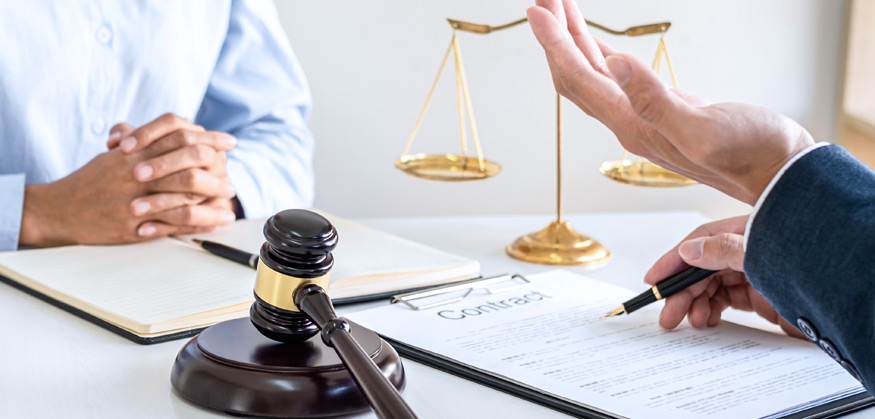Every family has its unique mix of personalities, past tensions, and old stories. When someone passes away without a clear estate plan, all of that can bubble up in the worst way. But with the right guidance, planning ahead doesn’t just protect assets—it protects relationships, too.
Clear Beneficiary Instructions Keep Drama Away
One of the biggest reasons family members argue after a loved one passes is confusion over who gets what. When beneficiary designations are vague—or missing altogether—it opens the door to assumptions, disagreements, and painful divides. A simple signature or unclear form can spiral into a full-blown family dispute, especially when emotions are already running high.
An experienced estate planning attorney in Huntsville AL will help ensure every beneficiary is named clearly and in writing. They’ll review everything from life insurance policies to retirement accounts and make sure they match up with the rest of the estate plan. A well-written will is just the start. Without updated beneficiary forms, even a perfectly crafted trust can leave loved ones clashing. Clarity prevents confusion—and keeps the peace.
Tailored Trusts Provide Family Peace of Mind
Trusts aren’t just for the wealthy. They’re powerful tools that help families avoid court, maintain privacy, and reduce the stress of inheritance. When designed correctly, trusts offer control from beyond the grave, ensuring money and property are passed down exactly how they were meant to be. That structure goes a long way in keeping relatives from stepping on each other’s toes.
A trust lawyer knows how to customize trusts for families with different dynamics. Maybe one child handles money well, but another doesn’t. Or maybe someone has special needs or is going through a divorce. A trust allows for flexible, protective planning that meets those individual situations without stirring resentment. Instead of one-size-fits-all decisions, trusts give every family member exactly what they need—and nothing to fight over.
Picking Neutral Executors to Avoid Conflict
Choosing an executor isn’t about picking the favorite child or closest sibling. It’s about selecting someone who can stay calm, follow directions, and not take sides. When a family member acts as executor without the right temperament—or if they’re part of ongoing family friction—it can escalate tension instead of settling it.
A seasoned estate planning attorney in Huntsville AL often recommends a neutral third party, especially in high-conflict families. A professional executor removes personal bias from the equation. They follow the letter of the will or trust without being influenced by family opinions. It might feel awkward at first to name someone outside the family, but in the long run, it can save relationships and make the process smoother for everyone involved.
Personal Property Lists Cut Arguments Short
It’s not always the big assets that spark fights—it’s the little things with sentimental value. Grandma’s wedding ring. Dad’s watch. The dining room table where every holiday dinner was shared. Without a list of who gets what, family members are left to sort it out on their own, and that rarely goes well.
Including a personal property memorandum alongside a will gives clear instructions about who should receive specific items. It might seem like a small detail, but it can prevent big emotions from getting the best of people. A trust lawyer can help clients draft a thorough, legally binding list that speaks for them when they can’t. That way, special items go to the right people—and stay out of court battles.
Advance Medical Directives Ease Family Tension
When someone becomes too sick to speak for themselves, loved ones are often forced to make medical decisions under intense pressure. Without knowing what the person wanted, siblings or spouses may disagree on care options, prolonging suffering and sparking guilt or anger that can last for years.
Creating a living will or healthcare directive with an estate planning attorney in Huntsville AL takes that burden off the family. It lays out medical preferences clearly, from life support to pain management. It also names a trusted person to carry out those wishes, avoiding group arguments when emotions run high. These documents may never be used, but if they are, they can be the difference between peace and regret.
Updating Your Estate Plan Curbs Misunderstandings
An outdated estate plan can be just as damaging as having none at all. Divorce, remarriage, births, deaths, or major financial changes can all affect how a plan functions. If a will names an ex-spouse or ignores a new grandchild, it sends the wrong message and causes unnecessary hurt.
Regular check-ins with a trust lawyer help keep plans current and accurate. Life changes, and your plan should reflect that. Updates also give people a chance to clarify intentions and fine-tune decisions as the years go on. Small updates now can prevent major confusion later, making sure everyone is on the same page.
Open Communication Prevents Probate Court Battles
One of the most overlooked parts of estate planning is simply talking about it. Families often avoid these conversations because they’re uncomfortable or emotional. But silence leaves space for guessing, and guessing leads to arguments. When everyone understands what’s in the plan—and why—it’s easier to accept it when the time comes.
An estate planning attorney in Huntsville AL can encourage clients to open these conversations while offering support along the way. Whether it’s a formal family meeting or just a quiet talk at the kitchen table, open dialogue can prevent surprises and build understanding. Families that talk through the tough stuff are less likely to end up in court—and more likely to stay connected.


